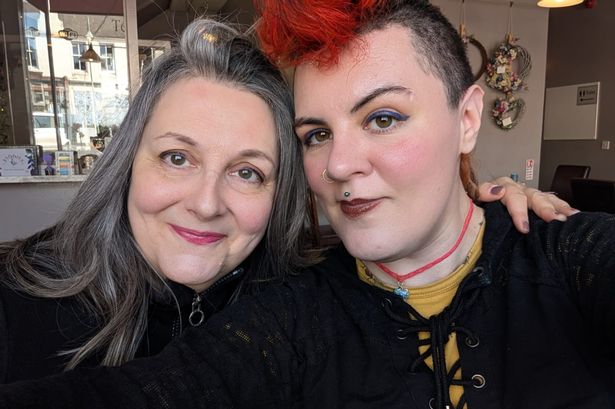Health
Scotland’s Children Face Long Waits for Mental Health Services

Children in Scotland are experiencing significant delays in accessing vital mental health services, with some waiting over 1,000 days for treatment. Recent data obtained through freedom of information requests from various NHS health boards highlights the troubling reality faced by young people across the country.
In the 2024-25 period, a patient in NHS Highland faced an astonishing wait of 1,189 days for support from Child and Adolescent Mental Health Services (CAMHS). Other regions, including NHS Ayrshire and Arran, NHS Tayside, and NHS Greater Glasgow and Clyde, have reported similarly alarming wait times, with some young people waiting more than two years for the necessary assistance.
Alex Cole-Hamilton, leader of the Scottish Liberal Democrats, expressed grave concerns about the impact of these delays on children’s mental health. He stated, “The SNP have spent the last two decades ignoring the scale of the mental health crisis. Their failures are plain to see in all those children waiting months and years for the treatment they need.” Cole-Hamilton emphasized that these lengthy waits only exacerbate mental health issues among children, adding, “Making children and young people wait years for help only worsens their mental health – it is a sure-fire way to add to their pain.”
The personal stories of families illustrate the consequences of these delays. Catherine Simpson, a mother from Edinburgh, endured an eight-year struggle to secure a diagnosis for her daughter, Nina, who is autistic. Catherine’s journey included three assessments before finally obtaining a diagnosis when Nina was ten years old. Reflecting on her experience, Catherine remarked, “It took three assessments over an eight-year period to get Nina a diagnosis. They were years of not really understanding her, blaming her for being her, showing frustration with her.”
Catherine’s story highlights the profound challenges faced by families navigating the mental health system. She noted that Nina’s early signs of autism, including an ability to decode letters at a young age, were often misunderstood. “The tantrums she had over the years, I now understood to be autistic meltdowns,” Catherine explained. Her experience underscores the risks that current children face, as many may reach adulthood without receiving the necessary support or diagnosis.
The situation has drawn criticism from various stakeholders. Daniel Johnson, a Member of the Scottish Parliament (MSP) representing the Labour Party, lamented the stagnation in mental health services. His proposed learning disabilities, autism, and neurodivergence Bill was dismissed earlier this year. Johnson argued that children currently have little chance of receiving a mental health diagnosis while in school. “Pretty much every part of the country has either temporarily or permanently ended the process of putting new people on the waiting list,” he stated.
The Scottish Government has faced scrutiny for its claims of progress in mental health support. Maree Todd, Minister for Social Care and Mental Wellbeing, insisted that advancements have been made, with further proposals for improvement forthcoming. Meanwhile, Tom Arthur, Minister for Mental Wellbeing, noted that the national standard on waiting times for children accessing mental health services has been met twice consecutively. He acknowledged the unacceptable nature of long waits but maintained that young people in need are generally seen quickly, with a median wait time of about five weeks.
While the government has committed to funding an additional 320 staff for CAMHS by 2026, many advocate for immediate actions to address the current crisis. The growing backlog of mental health cases poses a significant challenge, with the risk that children may endure prolonged periods without necessary support.
The issue of mental health access for children in Scotland remains urgent, with advocates calling for decisive action to reduce wait times and enhance the quality of care available. As families continue to navigate a complex system, the hope is that increased awareness and advocacy will lead to meaningful change in the near future.
-

 Health3 months ago
Health3 months agoNeurologist Warns Excessive Use of Supplements Can Harm Brain
-

 Health3 months ago
Health3 months agoFiona Phillips’ Husband Shares Heartfelt Update on Her Alzheimer’s Journey
-

 Science2 months ago
Science2 months agoBrian Cox Addresses Claims of Alien Probe in 3I/ATLAS Discovery
-

 Science2 months ago
Science2 months agoNASA Investigates Unusual Comet 3I/ATLAS; New Findings Emerge
-

 Science1 month ago
Science1 month agoScientists Examine 3I/ATLAS: Alien Artifact or Cosmic Oddity?
-

 Entertainment5 months ago
Entertainment5 months agoKerry Katona Discusses Future Baby Plans and Brian McFadden’s Wedding
-

 Science1 month ago
Science1 month agoNASA Investigates Speedy Object 3I/ATLAS, Sparking Speculation
-

 Entertainment4 months ago
Entertainment4 months agoEmmerdale Faces Tension as Dylan and April’s Lives Hang in the Balance
-

 World3 months ago
World3 months agoCole Palmer’s Cryptic Message to Kobbie Mainoo Following Loan Talks
-

 Science1 month ago
Science1 month agoNASA Scientists Explore Origins of 3I/ATLAS, a Fast-Moving Visitor
-

 Entertainment2 months ago
Entertainment2 months agoLewis Cope Addresses Accusations of Dance Training Advantage
-

 Entertainment4 months ago
Entertainment4 months agoMajor Cast Changes at Coronation Street: Exits and Returns in 2025









